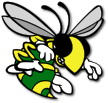Three Springdale Schools are among 300 state finalists in the annual Samsung Solve for Tomorrow competition, receiving a $2,500 prize package.
Lakeside Junior High School and Helen Tyson and Hellstern middle school Education Accelerated by Service and Technology students submitted game-changing projects for the challenge, according to a Samsung press release. Participants were required to tackle topics such as geopolitical matters, climate change, school safety, personal safety, mental health and school bus commuting.
Solve for Tomorrow is a national competition that challenges U.S. public school students in grades 6-12 to explore the role science, technology, engineering and math play in solving some of the biggest issues in their communities, according to the release.
“Our students in Springdale Schools do amazing things every day,” said Nicole Pena, Hellstern Middle School EAST facilitator. “They have extraordinary ideas that they work hard to fulfill.”

Camila Maldanado and Julia Penaflor, Helen Tyson Middle School seventh-graders, submitted the Smart Little Free Pantry project into the competition.
Student Projects
Camila Maldanado and Julia Penaflor, Helen Tyson Middle School seventh-graders, submitted the Smart Little Free Pantry project into the competition.
“It is very exciting to be recognized for the students' ideas and their work so far,” said Brittany Berry, Helen Tyson Middle School EAST facilitator.
The pantry project has two parts, Berry said. The project initially requires retrofitting the pantry to be a "smart" community tool, which will require adding as many as three students to the project team.
“We are also hoping to have a WIFI camera that allows anyone to see what is in it at any time,” she said.
The second part of the project is to create an app that gives people access to the camera stream, as well as the ability to share what they’re putting in the pantry for those in need, Berry said.
“We want to build a community around these resource points and make them more effective and efficient for people to use,” she said.
Ninth graders Katelyn Spurlock, Guadalupe Granados and Zane Turner of Lakeside Junior High School created a project to prevent flooding through data, said Jamie Stallings, Lakeside EAST facilitator.
“We are creating sensors to gather data in areas where flash flooding occurs and are hoping to share that data to create an early warning system,” Stallings said. “We hope it makes the community safer.”
Hellstern Middle School students moved forward in the competition with the Try Friends project, created by Townsend Teff, six grade, Mallory Ware, seventh grade, and Malachi Cross, sixth grade, Pena said.
The project features an app designed to help students overcome the awkwardness that sometimes occurs when building friendships within a school setting, Pena said.
The app will allow students to ask questions of other school students they’re matched with, she said. Students will then connect in person so the questions can be answered.
“They have studied the effects of not having many friends, as well as the anxiety that comes along with making friends,” Pena said. “This will help that initial saying ‘hi’ to someone new.”

Hellstern Middle School students moved forward in the competition with the Try Friends project, created by Townsend Teff, six grade, Mallory Ware, seventh grade, and Malachi Cross, sixth grade.
What' Next?
Hellstern will use it’s $2,500 prize package to update equipment in the EAST classroom to continue supporting student projects, Lakeside will use its prize to invest in technology to increase the EAST program’s classroom impact, while Hellstern will use the award to purchase a new computer or tablet to further advance its project, facilitators say.
“Getting this far in the competition is a big deal,” Pena said. “Being recognized for their work, even at the starting point, helps other students realize they are doing cool things and people do see it.”
Teachers and students at each of the state finalist schools are now asked to submit lesson plans detailing how their proposed STEM project will address the identified community issue, according to the Samsung release.
“This is our second year in a row to be part of the Samsung Solve for Tomorrow program, and we are excited to see what happens for us and the other Springdale Schools,” Berry said. “This program helps inspire the future of change makers in America, and we are grateful to get to participate.”
Fifty state winners will advance to the next phase of the competition and will receive $20,000 in technology and supplies, as well as a video kit to help document their project in action, according to the release. One of the 50 state winners will be chosen as the Sustainability Innovation Award Winner, receiving an additional $50,000 prize package of eco-conscious classroom technology.
The full list of 300 State Finalists can be found here.
More information on the competition is available here.

Ninth graders Katelyn Spurlock, Guadalupe Granados and Zane Turner of Lakeside Junior High School created a project to prevent flooding through data.

